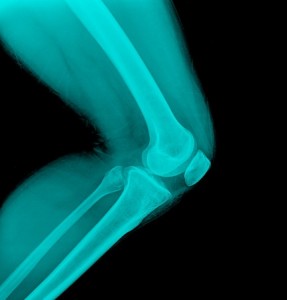 Until very recently, severe joint pain only had one long term solution: surgery. However, the growth in regenerative medicine research has helped doctors discover incredible techniques that can resolve joint pain without requiring any risky surgery. In clinical trial after clinical trial, stem cells have proven their ability to heal the body by regenerating and replacing lost and damaged tissue. Now that stem cells can give joints a second life, surgery shouldn’t be the automatic solution.
Until very recently, severe joint pain only had one long term solution: surgery. However, the growth in regenerative medicine research has helped doctors discover incredible techniques that can resolve joint pain without requiring any risky surgery. In clinical trial after clinical trial, stem cells have proven their ability to heal the body by regenerating and replacing lost and damaged tissue. Now that stem cells can give joints a second life, surgery shouldn’t be the automatic solution.
Concerns About Joint Surgery
Compared to other countries, the United States performs joint replacement surgeries at a much higher rate. With 600,000 knee joint replacement surgeries each year, many regenerative medicine professionals wonder if as a country we accept surgery as the solution too quickly. Joint replacement surgery is far from a perfect science. We have limited information about the long term impacts of surgery, and many young, active adults who opt for joint surgery end up still living with ongoing pain and disability due to surgical complications. One study found that only 50 percent of more than 200 knee and hip replacement patients reported significant improvement after recovery.
Controversy Surrounding Joint Surgery
Most patients trust joint surgery to fix their problem and their pain because surgery has become such an accepted element of modern medicine, but the truth is that joint surgery efficacy is shrouded in controversy. A number of knee surgeries, including knee debridement and arthroscopic surgery for knee osteoarthritis, have not proven any additional benefits or pain relief in studies. Furthermore, surgery places patients, especially the elderly, at risk of dangerous side effects like blood clots, pulmonary embolism, infections, nerve damage, and failure of prosthesis.
The Alternative
Given the many uncertainties and dangers related to joint surgery, the best alternative is new state-of-the-art stem cell therapy that treats cartilage like the living tissue that it is. Many joint problems stem from the damage and degeneration of cartilage, and stem cell therapy can stimulate new cartilage growth in order to make the body stronger. Known as RegenaJoint, this treatment is injected directly into the joint using a minimally invasive and completely safe procedure. Unlike surgery, which requires weeks and months of recovery, patients who choose RegenaJoint find themselves returning to activities within just weeks and enjoying a better quality of life that is largely free from the pain that used to define them.
